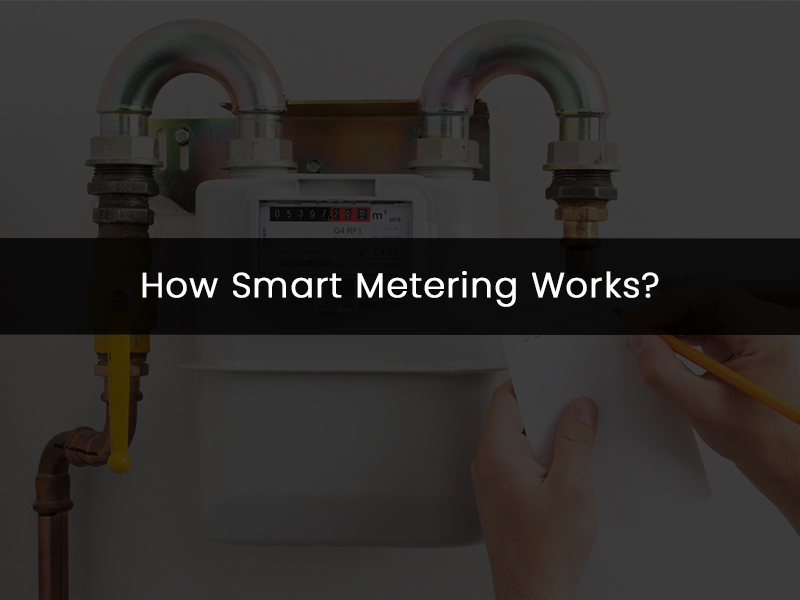
What Is Smart Metering?
Smart metering is a modern energy management system that involves the use of advanced digital devices—called smart meters—to measure, record, and communicate real-time utility consumption data. This includes electricity, gas, and water usage, providing both consumers and utility companies with accurate, up-to-date insights into resource consumption. Smart metering is a key component of advanced metering infrastructure (AMI) and is instrumental in transforming the way energy is managed, monitored, and distributed worldwide.
What Are Smart Meters?
Smart meters are advanced digital devices that measure and record electricity, gas, or water consumption in real time, providing accurate and up-to-date usage data to both consumers and utility companies. Unlike traditional analog meters that require manual readings, smart meters automatically transmit data through two-way communication, enabling efficient monitoring and management of resources.
These devices empower consumers by offering valuable insights into their energy usage, enabling them to adopt energy-efficient practices, reduce costs, and select tariffs that align with their needs. For utility providers, smart meters enhance grid performance, support remote resource control, and reduce operational inefficiencies. Furthermore, smart meters play a critical role in modernizing energy systems by enabling the development of smart grid infrastructure, which is crucial for improving energy efficiency, integrating renewable energy sources, and driving sustainability initiatives.
How Smart Metering Works
Smart meters are equipped with cutting-edge digital technology that enables seamless two-way communication between consumers and utility companies. Here’s how they work:
1. Measure Consumption: Smart meters track energy, gas, or water usage in real time, offering unparalleled accuracy.
2. Transmit Data: Usage information is automatically sent to utility providers without the need for manual readings, ensuring efficiency and reliability.
3. Control Resources: Utilities can remotely monitor and manage resource flow, enabling remote activation, disconnection, or adjustments during peak demand.
4. Empower Consumers: Through mobile apps or in-home displays, smart meters provide consumers with real-time insights, helping them make informed decisions to optimize energy consumption and improve efficiency.
Benefits of Smart Metering
1. For Consumers
• Transparency and Control: Smart meters offer detailed insights into energy consumption, helping customers understand how their habits affect their bills.
• Cost Management: By monitoring usage, consumers can identify ways to reduce energy waste and choose tariffs that align with their consumption patterns.
• Support for Renewable Energy: Smart meters facilitate distributed energy generation (e.g., solar panels), allowing consumers to produce their own energy and reduce their carbon footprint.
2. For Utility Companies
• Enhanced Grid Management: Smart meters deliver real-time data that helps utilities optimize energy distribution, detect outages faster, and manage peak demand more effectively.
• Operational Efficiency: Automated data collection eliminates the need for manual meter readings, reducing operational costs and improving accuracy.
• Smart Grid Development: Smart metering lays the foundation for smart grid infrastructure, which enhances the reliability, efficiency, and sustainability of energy distribution systems.
Why Smart Metering Is Important
At a time when energy efficiency and sustainability are critical global concerns, smart metering offers a powerful solution. It enables:
1. Energy Optimization: Encourages both consumers and utilities to adopt energy-efficient practices.
2. Accurate Billing: Ensures precise billing based on actual consumption rather than estimates.
3. Environmental Benefits: Reduces energy wastage, promotes the use of renewable energy, and supports efforts to combat climate change.
Smart Metering vs. Traditional Metering

SenseMi: Pioneering the Future of Smart Metering
At SenseMi, we are at the forefront of smart metering innovation, offering cutting-edge solutions for electricity, gas, and water management. Our advanced smart meters are designed to provide real-time, accurate consumption data, empowering both consumers and utility companies to make smarter decisions.
As a leader in the smart metering industry, we specialize in delivering modular, digital energy meters that integrate seamlessly with advanced metering infrastructure (AMI) and smart grid systems. Our devices feature advanced communication technologies such as NB-IoT, LTE-M, and LoRaWAN, enabling efficient two-way data exchange and remote monitoring.
SenseMi’s smart meters are not just devices—they are enablers of energy transformation. By supporting distributed energy generation and promoting energy efficiency, we help consumers reduce their carbon footprint while helping utilities optimize grid performance. Our mission is to drive sustainability through intelligent energy management and innovative solutions, making smart metering accessible and impactful for households, businesses, and cities worldwide.
Conclusion
Smart metering is more than just a technological advancement—it is a game-changer in how we consume and manage energy. With SenseMi's state-of-the-art smart meters, we are shaping the future of energy efficiency and sustainability, empowering consumers, and driving innovation for utility companies. By embracing smart metering, we can collectively build a smarter, greener, and more connected future.








